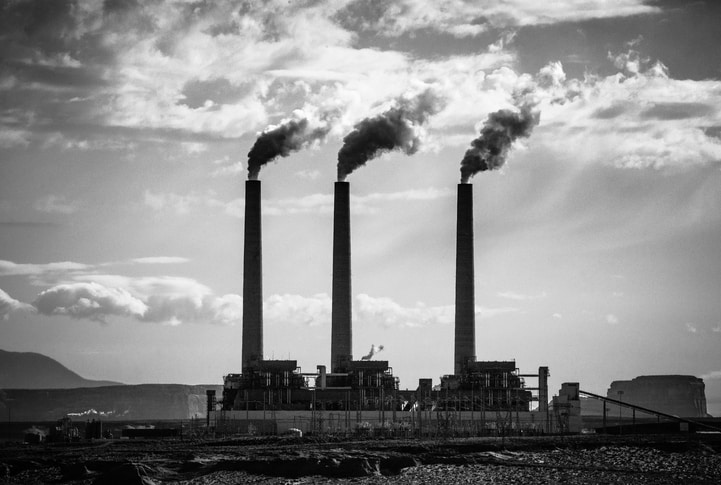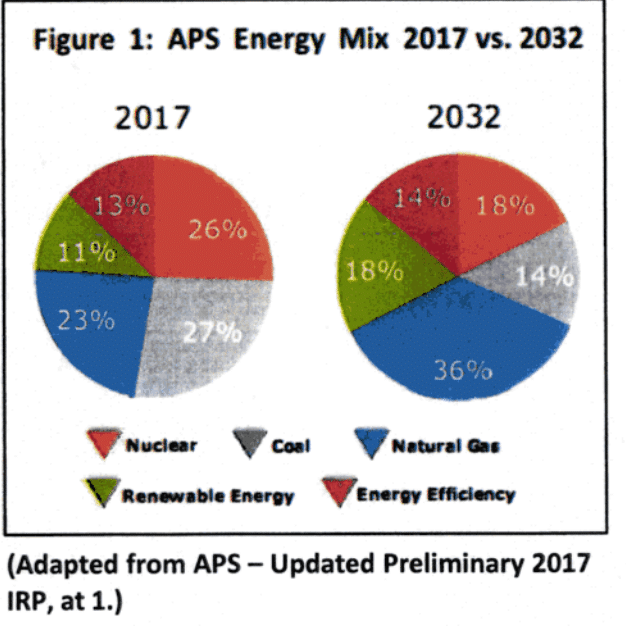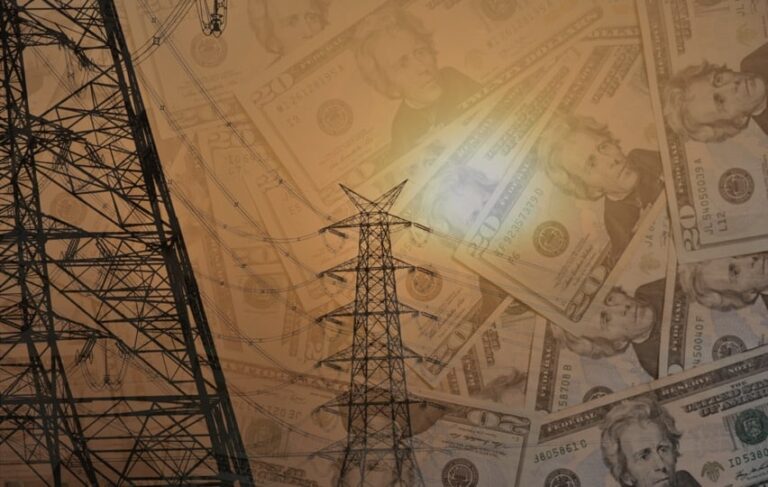Arizona Commissioner To APS: Why Invest In So Much Gas?

Arizona Corporation Commissioner (ACC) Andy Tobin wrote a letter last month to Arizona’s monopoly electric utility, Arizona Public Service Company (APS), expressing concern over its plans for a massive investment in natural gas over the next 15 years. “Natural gas will dominate Arizona Public Service’s (APS’s) generating resources by 2032 … This trajectory is troubling,” wrote Tobin. Indeed, why would Arizona, with its world-class solar resource, spend billions of dollars each year paying to import natural gas from other states?
APS’ most recent plan for 2032 shows a steep increase in the use of natural gas, adding a stunning 5,300 megawatts. During the same time frame, APS wants to add less than 300 MW of utility-scale clean energy and storage, and a paltry 250 total MW of distributed solar. That’s over 18 times more gas capacity than total solar capacity in 2032.

The billions of dollars APS wants to spend on the gas plants doesn’t even include the cost of fuel, which is notoriously volatile. As Commissioner Tobin put it:
[APS’ plans] are heavily weighted toward the selection of a single resource option – natural gas – exposing Arizonans to significant financial risk. Not only does over-investment in natural gas increase the risk of higher energy prices that have been historically unstable, but Arizonans would also be forced to pay the unnecessary costs for idled generation infrastructure used a fraction of the year.
Tobin’s letter raises the possibility of those gas assets becoming “stranded” if they no longer are profitable relative to other resources like solar power and storage. Given the steady decline in the costs of those resources and the historical volatility of gas prices, the possibility of stranded assets in APS’ plan seems high.
APS may not be as worried about stranded assets if it feels it can pass that bill to customers. After all, even if it turns out in 10 years that the utility made foolish decisions to double down on gas, customers will be paying for the plants in their electric bills.
That’s why in states with electric monopolies like Arizona, regulators are empowered to exercise scrutiny over the long-term plans of utilities, and it’s a good sign for Arizona customers that Tobin is exercising that mandate. Addressing the lack of transparency in APS’ filing, Tobin wants to see charts and tables to compare costs between different types of generation. He particularly asks for more information about energy storage.
Tobin says that costs should include both current and future environmental compliance costs, as well as a range of costs for greenhouse gas emissions and toxic pollutants such as mercury and acid rain. This is sound logic: natural gas combustion creates carbon emissions, and drilling and transporting natural gas results in the leakage of methane, a powerful greenhouse gas. The reckless natural gas building boom being pursued by APS and a host of other U.S. utilities would make it impossible for the U.S. to meet greenhouse gas reduction targets in line with our international commitments or prevailing climate science.
All of this gas investment looks even more foolish next to the rapidly declining costs of solar energy and energy storage. APS’ decision to dive headlong into gas, despite the obvious benefits of solar, storage and efficiency technologies to Arizona’s electric economy and environment, isn’t surprising given the company’s track record of fighting to kill policies that support rooftop solar power, like net metering.
But APS’ neglect, relative to gas, of utility-scale solar power – the type that it owns and operates – is quite surprising, given that APS has postured itself as a cheerleader for that resource when convenient for the company. In fact, APS aggressively touted a report from the Brattle Group claiming that utility-owned solar farms are “more cost-effective and produced greater environmental benefits” than customer-owned rooftop solar power. APS has consistently used this argument when attacking rooftop solar power; knowing that its customers love solar energy, the monopoly contends that it loves solar too, but that it’s a better deal for customers if they leave the solar ownership to APS.
It’s worth noting that the preponderance of studies disagree with APS’ position on rooftop solar power, finding that the benefits of rooftop solar power to customers outweigh any costs.
But even if we take APS’ contention that utility-scale solar is good for customers, and rooftop solar is bad for customers, at face value, the company’s long-term investment plan belies that argument as a straw man. The investment plans make clear that APS is not attacking rooftop solar so that it can build more utility-scale solar; it is attacking rooftop solar so it can build gas plants.
Commissioner Tobin has not always been a friend to the solar industry. Two weeks before sending his letter criticizing APS’ natural gas plans, Tobin voted in APS’ favor, along with three of his fellow commissioners, to end net metering in Arizona. The decision dealt a blow to the rooftop solar industry. He also has pursued endeavors on the side of his ACC duties that will not help the Commission earn the public’s trust after years of scandal around its relationship to APS.
But in this case, Tobin deserves credit for questioning APS’ planned gas rush as a boondoggle waiting to happen for Arizona’s electricity customers, and for our environment. If his letter serves to push APS’ investments away from gas, and toward solar, storage, and efficiency, he will have saved his constituents from a potential disaster.



